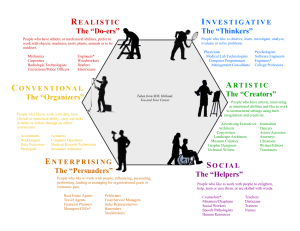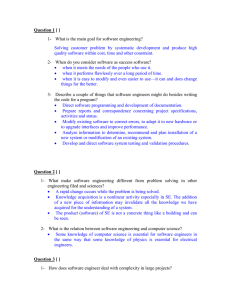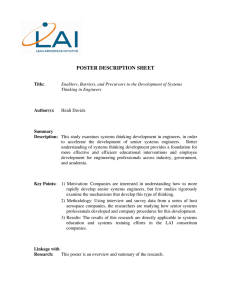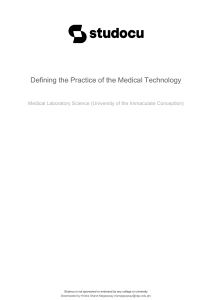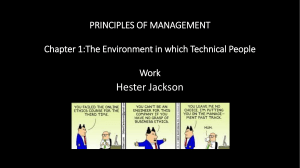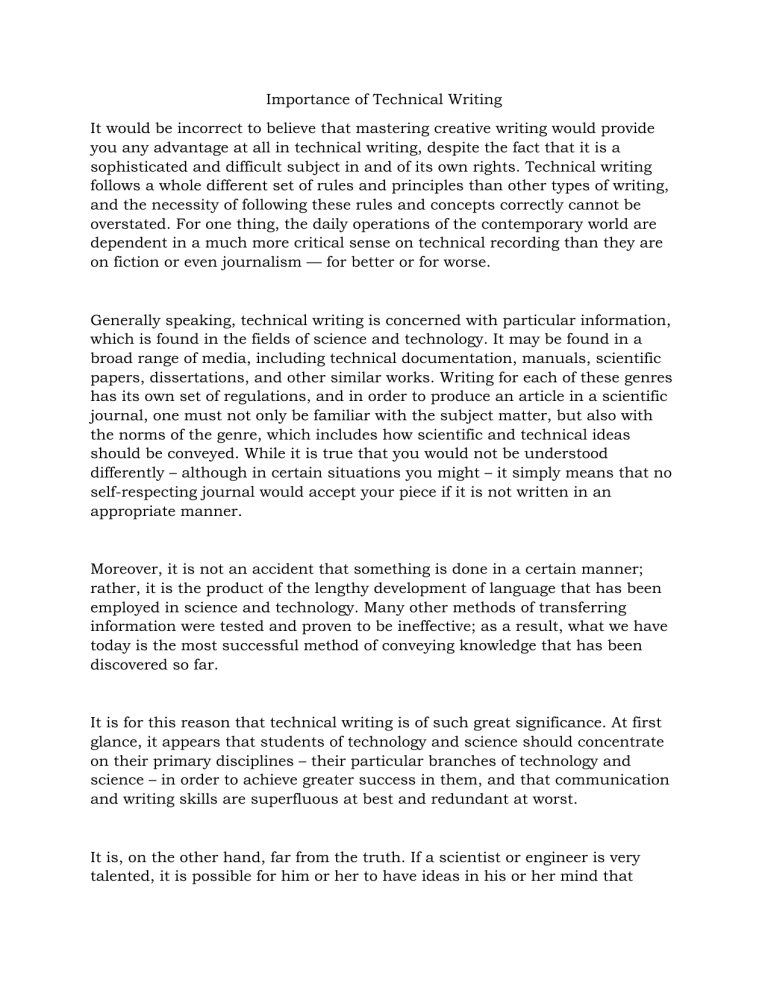
Importance of Technical Writing It would be incorrect to believe that mastering creative writing would provide you any advantage at all in technical writing, despite the fact that it is a sophisticated and difficult subject in and of its own rights. Technical writing follows a whole different set of rules and principles than other types of writing, and the necessity of following these rules and concepts correctly cannot be overstated. For one thing, the daily operations of the contemporary world are dependent in a much more critical sense on technical recording than they are on fiction or even journalism — for better or for worse. Generally speaking, technical writing is concerned with particular information, which is found in the fields of science and technology. It may be found in a broad range of media, including technical documentation, manuals, scientific papers, dissertations, and other similar works. Writing for each of these genres has its own set of regulations, and in order to produce an article in a scientific journal, one must not only be familiar with the subject matter, but also with the norms of the genre, which includes how scientific and technical ideas should be conveyed. While it is true that you would not be understood differently – although in certain situations you might – it simply means that no self-respecting journal would accept your piece if it is not written in an appropriate manner. Moreover, it is not an accident that something is done in a certain manner; rather, it is the product of the lengthy development of language that has been employed in science and technology. Many other methods of transferring information were tested and proven to be ineffective; as a result, what we have today is the most successful method of conveying knowledge that has been discovered so far. It is for this reason that technical writing is of such great significance. At first glance, it appears that students of technology and science should concentrate on their primary disciplines – their particular branches of technology and science – in order to achieve greater success in them, and that communication and writing skills are superfluous at best and redundant at worst. It is, on the other hand, far from the truth. If a scientist or engineer is very talented, it is possible for him or her to have ideas in his or her mind that might alter the way we understand his or her subject, or perhaps the way we perceive science in general. However, if he does not possess the essential writing abilities, he will be unable to communicate his views and convince others of their advantages. And, in today's competitive world, it is much more critical than ever before. A second-rate specialist with a superior command of technical writing may create a better and more structured project than a superb expert who has overlooked this aspect of his or her educational background. And, given the fact that the vast majority of technologists and engineers today work in business, in highly competitive fields, it is important to note that their (Engineering) department is always just one of many, and it must compete with other units such as management, marketing, design, and so on. Despite the fact that all divisions within a corporation are nominally working toward the same objective, they are not always in agreement on how to get there. Finally, engineers do work that should be sold by others - they are by definition less willing to engage with other people, show their argument, and sell their ideas than, for example, members of the marketing department are. And, in order to be successful in such an environment, a technologist must have the skills necessary to defend his or her case - namely, a thorough mastery of technical writing. That is why anybody interested in pursuing a career in science and technology will do themselves and the world of good by doing their very best and learning the fundamentals of technical writing before it becomes a problem.
